18th Annual
Mary Frances Early College of Education
Diversity, Equity, and Inclusion Conference
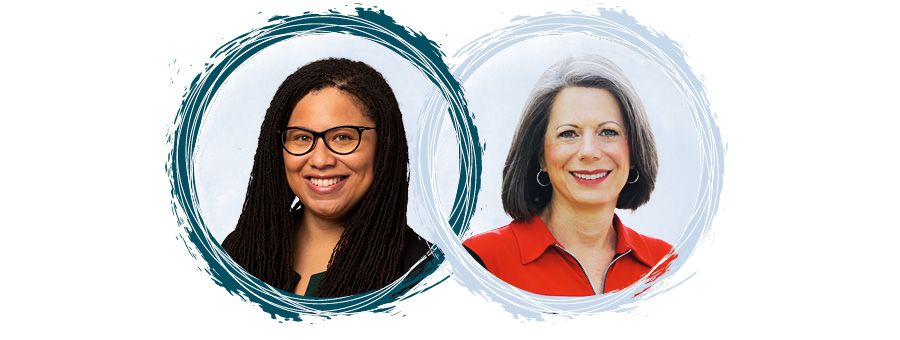
Welcome from the Dean’s Office
Welcome to the 18th Annual Diversity, Equity, and Inclusion Conference hosted by the Mary Frances Early College of Education at the University of Georgia. We are delighted for our community to join us for this year’s conference: Strengthening our Community through (Rest)oration.
The conference theme reflects the urgency of addressing wellness concerns within our campus and local communities. Given the social, political, economic, and health crises happening across the nation, our faculty, students, and staff have experienced a dramatic increase in occupational fatigue and mental health challenges. During this time together, we will move beyond the language of self-care as a wellness strategy and discuss institutional approaches to alleviating shared stress, emotional burnout, and secondary trauma. We will closely examine the relationship between academic productivity and the uneven distribution of service labor and offer a broader critique of the culture of “busyness” within education. By politicizing rest and centering our well-being as a form of radical action, we invite you to consider how we can all serve as agents of change in prioritizing wellness care within our work environments.
Our keynote speaker, Dr. Adrianne Pinkney, is a proud alumna of the Mary Frances Early College of Education, and she will lead our community in connecting integrative wellness strategies to collective healing and restoration. Following our keynote address, we welcome you to join our breakout sessions centered on student well-being, faculty/staff support, and improving accessibility in wellness care. Our hope is to shift the conversation of academic fatigue and emotional burnout away from individualistic notions of wellness in favor of promoting structural solutions and holistic support. Our closing session will be a community-based conversation to discuss well-being initiatives in the Athens community, including financial wellness, health equity, and family engagement. We invite campus and local leaders to share their experiences within Clarke County and offer thoughts on how our campus can support wellness initiatives in the Athens area.
We look forward to welcoming you to our 2023 DEI conference. Thank you to the speakers, presenters, and panelists who will inspire us with thoughtful conversation. And a special thank you to our Diversity, Equity, and Inclusion Conference committee members for your contributions in planning the event. The Mary Frances Early College of Education reaffirms our commitment to holistically supporting our students and colleagues and advocating for a just and equitable community.
Be well,
Camille & Denise
Conference Program Schedule
8:30–10 a.m. – Opening Session
Welcome
Camille Reynolds, Assistant Dean of Diversity, Equity, and Inclusion, Mary Frances Early College of Education
Denise Spangler, Dean, Mary Frances Early College of Education
Land Acknowledgement
Institute of Native American Studies
Introduction of the Keynote Speaker
Brigette Kinkade, Graduate Assistant in the Office of Diversity, Equity, and Inclusion
Keynote Speaker
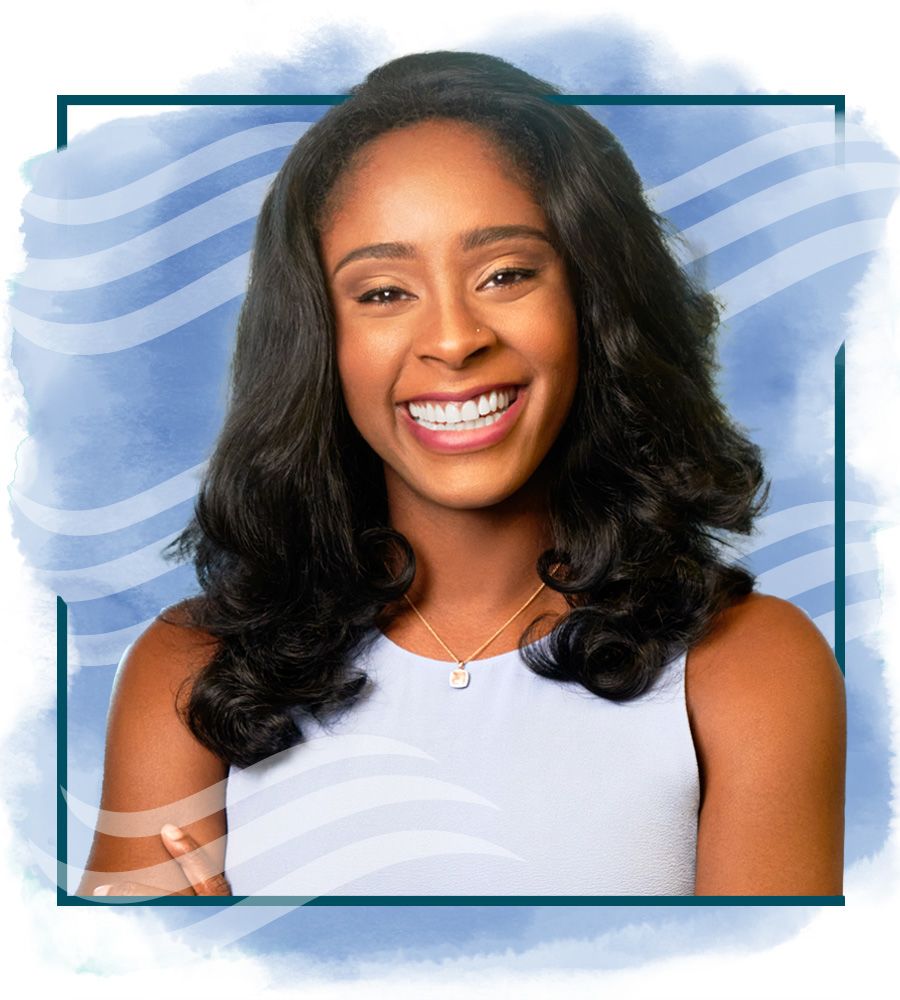
Adrianne Pinkney, Ph.D., founder of B. Well: Live Consciously
Adrianne Rochelle Pinkney, Ph.D., is the founder of
B. Well: Live Consciously, an integrative wellness and life coaching company that offers individual coaching, corporate training, wellness retreats, and motivational speaking. She inspires others to consciously create lives that work! Pinkney specializes in integrative wellness, career coaching, and mindfulness and codependency training. She holds her bachelor’s degree in political science and women’s studies from Spelman College, a master’s in social studies education from the Mary Frances Early College of Education, and a doctorate in educational studies from Emory University. As a coach, Pinkney encourages “conscious creation through conscious choice.”
10–10:15 a.m. – Break
10:15–11:15 a.m. – Breakout sessions
- Session 1: Supporting Student Well-Being at UGA
- Session 2: Examining our Commitment to Service and Compassion Fatigue
- Session 3: Creating Wellness at the Ivory Tower with Louis Negron
- Session 4: Laying Down our Capes: Saying No to the Superhero Complex
Session 5: Evaluating Wellness and Ableism
11:15–11:30 a.m. – Break
11:30 a.m.–12:30 p.m. – Community Conversations
Moderator: Briana Spivey, Ph.D. candidate, Franklin College of Arts and Sciences
Dialogue Participants:
- Soraia Santos Felgenhauer, Clarke County School District
- Jennifer Scott, Clarke County School District
- Caleb Snead, College of Public Health
The University of Georgia is dedicated to creating and supporting partnerships among schools and families in our local community. In this session, attendees will hear from local community members about integrative holistic wellness practices in the Athens areas, including mental health support, financial wellness, health equity, and family engagement. These leaders have incorporated wellness practices into their own work in the hopes of making a more positive impact on the well-being of Athens and its larger community through service and transformative support.
12:30–1 p.m. – Closing Session
Breakout Sessions
Session 1: Supporting Student Well-Being at UGA
Moderator: Shawntell Pace—Ph.D. candidate, Department of Counseling and Human Development Services, Mary Frances Early College of Education
Dialogue Participants:
- Thomas Atkins, UGA Pride Center
- Brennen Sanders, Student Veterans Association
- Beau Seagraves, UGA Student Well-Being
- Demetrius Smith, UGA Student Affairs
- Alicia Talbird, Student Care and Outreach
This session invites leaders from multiple campus offices to discuss wellness support and offers a deeper examination of how cultural environments can affect student well-being, including the stressful conditions of classroom study, the impact of our current sociopolitical climate, and structural barriers to accessing campus resources and crisis services. Attendees will have the opportunity to engage in a dialogue with representatives from UGA Student Well-being, Student Care and Outreach, UGA Pride Center, and UGA Student Affairs to discuss best strategies to prioritize student wellness.

Session 2: Examining our Commitment to Service and Compassion Fatigue
Moderator: Sha’Mira Covington, Ph.D. candidate, Department of Textiles, Merchandising, and Interiors, College of Family and Consumer Sciences
Dialogue Participants:
- Jill Bassett-Cameron, Central CT State University
- Rachel Cagliani, Department of Communication Sciences and Special Education, Mary Frances Early College of Education
- Zoe Johnson, School of Social Work
This session will explore the relationship of compassion fatigue and emotional burnout in higher education. Our panelists will discuss the stressful conditions of advocacy work and activism, including the traumatic secondary exposure that often serves as the cost of caring in an educational environment and working closely with students. Attendees will have the chance to engage with faculty clinicians, representatives from the UGA School of Social Work, and community leaders to consider how our campus community—especially our faculty and staff—can address the issue of “vicarious trauma” while making still meaningful contributions to one’s research and professional work.

Session 3: Creating Wellness in the Ivory Tower
Moderator: Reverend Louis Enrique Negron, B. Well: Live Consciously
Working in the academy can be mentally, emotionally, spiritually, and even physically taxing. In this work, we pour so much into publishing, writing, advising, and teaching that it is easy to become depleted. However, it is often said, “it’s not the load that breaks you down, it’s the way you carry it.” This conversation-based session offers practical ways to prioritize self-care, well-being, and healing. We will discuss ways to support wellness beyond the conference session and learn how to connect to the overall campus wellness initiatives and create internal and external safe spaces.

Session 4: Laying Down our Capes: Saying No to the Superhero Complex
Moderator: Jaminque Adams—Ph.D. student, Department of Educational Theory and Practice, Mary Frances Early College of Education
Dialogue Participants:
- Susan Williams, Department of Population Health and Office of Institutional Diversity, College of Veterinary Medicine
- Sherell McArthur, Department of Educational Theory and Practice, Mary Frances Early College of Education
- Lawrence Harris, The College Factory
Many of us consider educators, teachers, and DEI advocates as the “heroes” of education and honor their resilience and commitment to educating students and/or dismantling systems of inequity in their educational environments. But what happens when our heroes are in crisis? This session invites campus leaders to examine the problem of the “martyr” educator or administrator who often feels compelled to tirelessly transform the institutional culture of a university system or a K-12 classroom—often to the detriment of mental health, well-being, and even personal safety. We will address the problems of over-sacrificing as teachers and administrators and discuss institutional solutions to support educators and DEI advocates during a time of educational censorship.

Session 5: Evaluating Wellness and Ableism
Moderator: Elizabeth Hoggard-King, Ph.D. student, Department of Human Development and Family Science, College of Family and Consumer Sciences
Dialogue Participants:
- Trisha Barefield, University Testing Services, Disability Resource Center
- Brian Leffler, Department of Communication Sciences and Special Education, Mary Frances Early College of Education
- Lisa Ulmer, Destination Dawgs, Institute on Human Development and Disability
This session will examine whether our current notions of wellness education are ableist in nature. Are the support resources for well-being at the university inclusive of those with neurodiversity, physical disabilities, or invisible health conditions? We explore the question of implicit ableism in wellness practices and learn how to better understand the complexities of wellness care in ways that consider the experiences of all individuals. The session will feature representatives from the UGA Disability Resource Center, American Sign Language, and other campus leaders to discuss the lived realities of persons with disabilities and chronic conditions, as well as offer meaningful solutions to decenter wellness education from ableist practices.

Session 1: Supporting Student Well-Being at UGA
Moderator: Shawntell Pace—Ph.D. candidate, Department of Counseling and Human Development Services, Mary Frances Early College of Education
Dialogue Participants:
- Thomas Atkins, UGA Pride Center
- Brennen Sanders, Student Veterans Association
- Beau Seagraves, UGA Student Well-being
- Demetrius Smith, UGA Student Affairs
- Alicia Talbird, Student Care and Outreach
This session invites leaders from multiple campus offices to discuss wellness support and offers a deeper examination of how cultural environments can affect student well-being, including the stressful conditions of classroom study, the impact of our current sociopolitical climate, and structural barriers to accessing campus resources and crisis services. Attendees will have the opportunity to engage in a dialogue with representatives from UGA Student Well-being, Student Care and Outreach, UGA Pride Center, and UGA Student Affairs to discuss best strategies to prioritize student wellness.

Session 2: Examining our Commitment to Service and Compassion Fatigue
Moderator: Sha’Mira Covington, Ph.D. candidate, Department of Textiles, Merchandising, and Interiors, College of Family and Consumer Sciences
Dialogue Participants:
- Jill Bassett-Cameron, Title IX coordinator, Central CT State University
- Rachel Cagliani, Department of Communication Sciences and Special Education, Mary Frances Early College of Education
- Zoe Johnson, School of Social Work
This session will explore the relationship of compassion fatigue and emotional burnout in higher education. Our panelists will discuss the stressful conditions of advocacy work and activism, including the traumatic secondary exposure that often serves as the cost of caring in an educational environment and working closely with students. Attendees will have the chance to engage with faculty clinicians, representatives from the UGA School of Social Work, and community leaders to consider how our campus community—especially our faculty and staff—can address the issue of “vicarious trauma” while making still meaningful contributions to one’s research and professional work.

Session 3: Creating Wellness in the Ivory Tower
Moderator: Reverend Louis Enrique Negron, minister and life coach, B. Well: Live Consciously
Working in the academy can be mentally, emotionally, spiritually, and even physically taxing. In this work, we pour so much into publishing, writing, advising, and teaching that it is easy to become depleted. However, it is often said, “it’s not the load that breaks you down, it’s the way you carry it.” This conversation-based session offers practical ways to prioritize self-care, well-being, and healing. We will discuss ways to support wellness beyond the conference session and learn how to connect to the overall campus wellness initiatives and create internal and external safe spaces.

Session 4: Laying Down our Capes: Saying No to the Superhero Complex
Moderator: Jaminque Adams—Ph.D. student, Department of Educational Theory and Practice, Mary Frances Early College of Education
Dialogue Participants:
- Susan Williams, Department of Population Health and Office of Institutional Diversity, College of Veterinary Medicine
- Sherell McArthur, Department of Educational Theory and Practice, Mary Frances Early College of Education
- Lawrence Harris, president, The College Factory
Many of us consider educators, teachers, and DEI advocates as the “heroes” of education and honor their resilience and commitment to educating students and/or dismantling systems of inequity in their educational environments. But what happens when our heroes are in crisis? This session invites campus leaders to examine the problem of the “martyr” educator or administrator who often feels compelled to tirelessly transform the institutional culture of a university system or a K-12 classroom—often to the detriment of mental health, well-being, and even personal safety. We will address the problems of over-sacrificing as teachers and administrators and discuss institutional solutions to support educators and DEI advocates during a time of educational censorship.

Session 5: Evaluating Wellness & Ableism
Moderator: Elizabeth Hoggard-King, Ph.D. student, Department of Human Development and Family Science, College of Family and Consumer Sciences
Dialogue Participants:
- Trisha Barefield, University Testing Services, Disability Resource Center
- Brian Leffler, Department of Communication Sciences and Special Education, Mary Frances Early College of Education
- Lisa Ulmer, Destination Dawgs, Institute of Development & Disability
This session will examine whether our current notions of wellness education are ableist in nature. Are the support resources for well-being at the university inclusive of those with neurodiversity, physical disabilities, or invisible health conditions? We explore the question of implicit ableism in wellness practices and learn how to better understand the complexities of wellness care in ways that consider the experiences of all individuals. The session will feature representatives from the UGA Disability Resource Center, American Sign Language, and other campus leaders to discuss the lived realities of persons with disabilities and chronic conditions, as well as offer meaningful solutions to decenter wellness education from ableist practices.
Community Panel
Introducing our Community Panel:
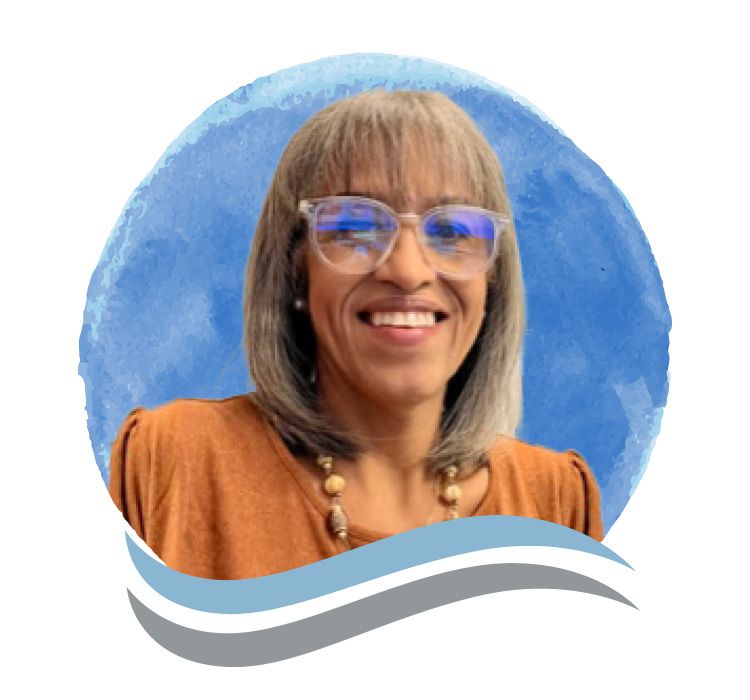
Soraia Felgenhauer
Soraia Felgenhauer
Soraia Santos Felgenhauer currently serves as the director for family and community engagement for the Clarke County School District. Originally from Brazil, she made the United States her official home after graduating college with a degree in psychology and later continuing her education with a specialist’s degree in school counseling and administration. Before joining the Clarke Country School District, she served as a counselor, state social worker, and school administrator.
Santos Felgenhauer has a deep passion for supporting and coaching people into finding their best selves upon arrival to the United States. Sharing in the familiar struggles of an international student whose second language was English, she has long worked to help support those from different cultures and backgrounds. She describes her professional work as “bringing family voices to the table and being a steward to highlight equity and provide quality support to families…[which] can be silenced by inequality and by limited understanding of the riches brought by diversity and inclusion from all voices around the table.”
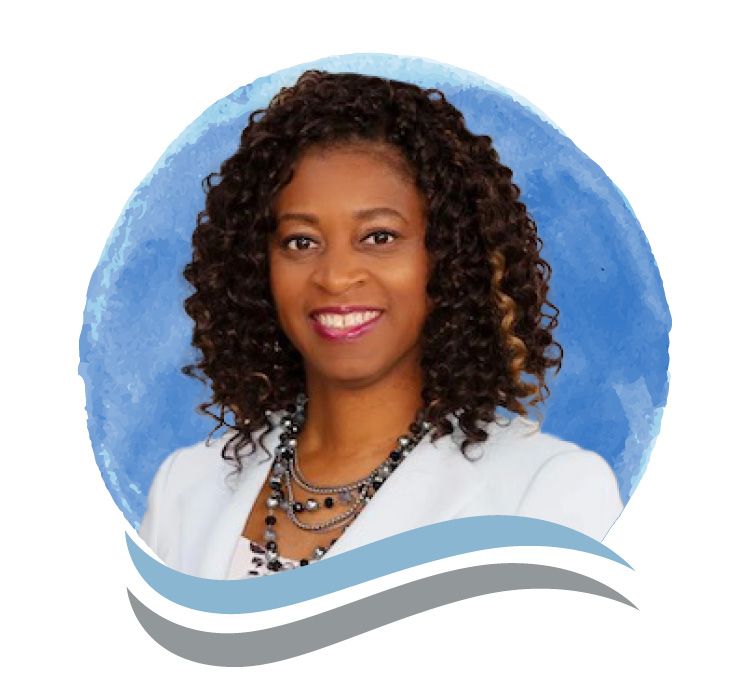
Jennifer Scott
Jennifer Scott
Jennifer Scott serves as the chief of academics and student supports for the Clarke County School District (CCSD). In this role, she oversees the district’s leadership development; curriculum and instruction; student support services; special education; innovation, strategy, and governance; federal programs; and family and community engagement.
Scott joined CCSD in 1998 as a classroom teacher at Timothy Road Elementary School. She later became assistant principal at TRES in 2007 before serving as principal of Barnett Shoals Elementary School from 2011-2019. While at Barnett Shoals, she provided instructional leadership that led to a steady and consistent increase in student performance. She also fostered community partnerships aimed at supporting the academic and social-emotional needs of her school community.
Scott was appointed executive director of leadership development in 2019, a role in which she supervised and promoted the professional growth and development of CCSD principals. She was promoted to chief of student and family supports in 2022. Scott is a Triple Dawg, holding a bachelor’s degree in speech communications, a master’s degree in early childhood education, and a doctorate in educational leadership, all from the University of Georgia.
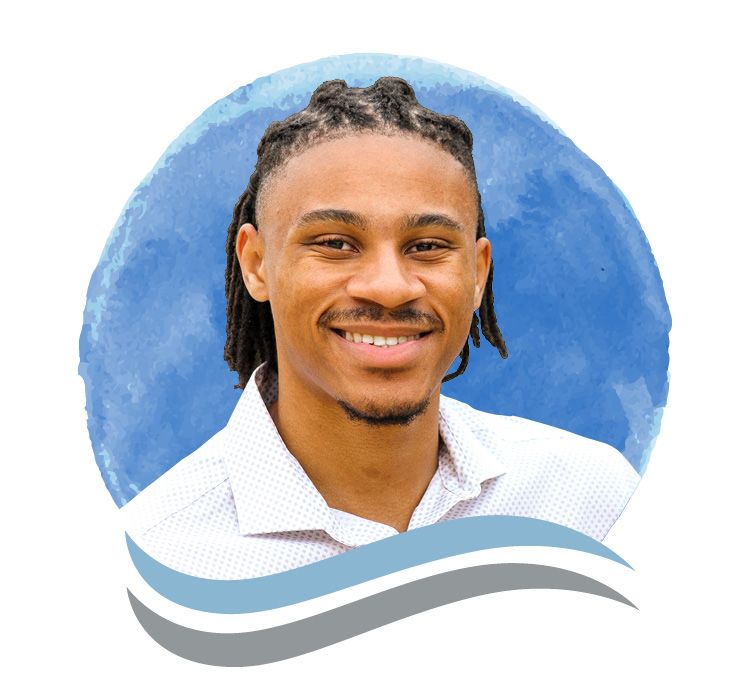
Caleb Snead
Caleb Snead
Caleb Snead is from Snellville, Georgia, and is pursuing both an undergraduate degree in health promotion and an M.P.H. in health promotion and behavior as a part of the Double Dawgs program at the University of Georgia. Snead is currently a student assistant at UGA Archway Partnership and a research assistant at the College of Public Health’s Institute of Gerontology.
Snead has worked on several public health initiatives at Archway Partnership, including assisting in the organization of the Farm Worker Family Health Program, presenting content and organizing programming for a health education initiative in African American faith-based communities, and researching and working to implement the mental health co-responder model in Moultrie, Georgia.
On behalf of the Institute of Gerontology’s Cognitive Aging Research and Education (CARE) Center, Snead has assisted in the development and evaluation of education tailored for rural Georgians on dementia risk reduction and health promotion. He is the student lead for McDuffie County, and in this role, he mentors multiple undergraduate students and tailors the CARE Center’s initiatives to community, medical, and faith leadership stakeholders.
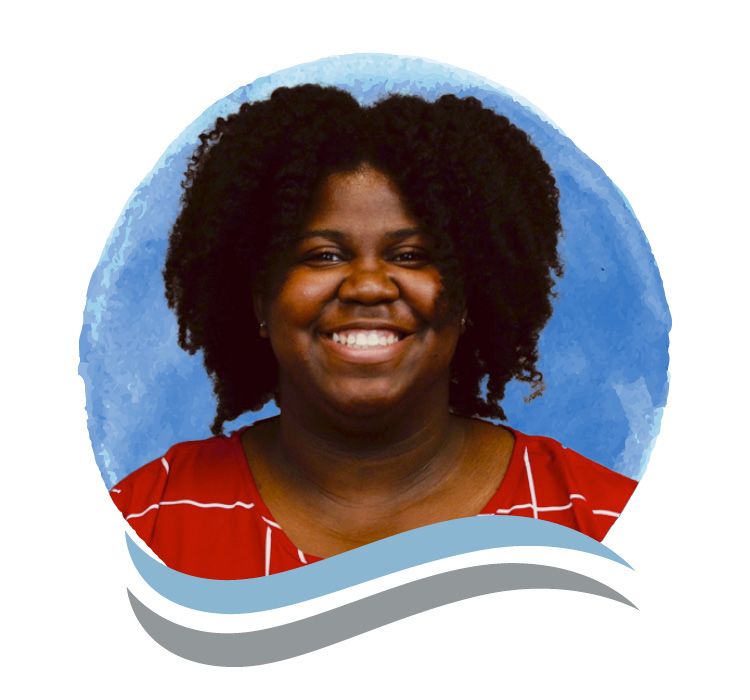
Briana Spivey
Briana Spivey
Briana Spivey, M.S., is a fourth-year doctoral candidate in the clinical psychology program at the University of Georgia and a graduate of Spelman College. Spivey’s research examines Black womanhood across the lifespan by examining the implications of cultural constructs (i.e. the Strong Black Woman (SBW) schema) on Black women’s mental health.
Spivey has an interest in developing culturally relevant interventions for Black women as a means to reducing mental health disparities. She believes that me-search equals research and hopes to use her voice in the academy to highlight the experiences of Black women. With her passion for mental health within the Black community, Spivey plans to continue her path by serving as a licensed clinical psychologist and tenure-track professor.

Soraia Felgenhauer
Soraia Felgenhauer

Jennifer Scott
Jennifer Scott

Caleb Snead
Caleb Snead

Briana Spivey
Briana Spivey
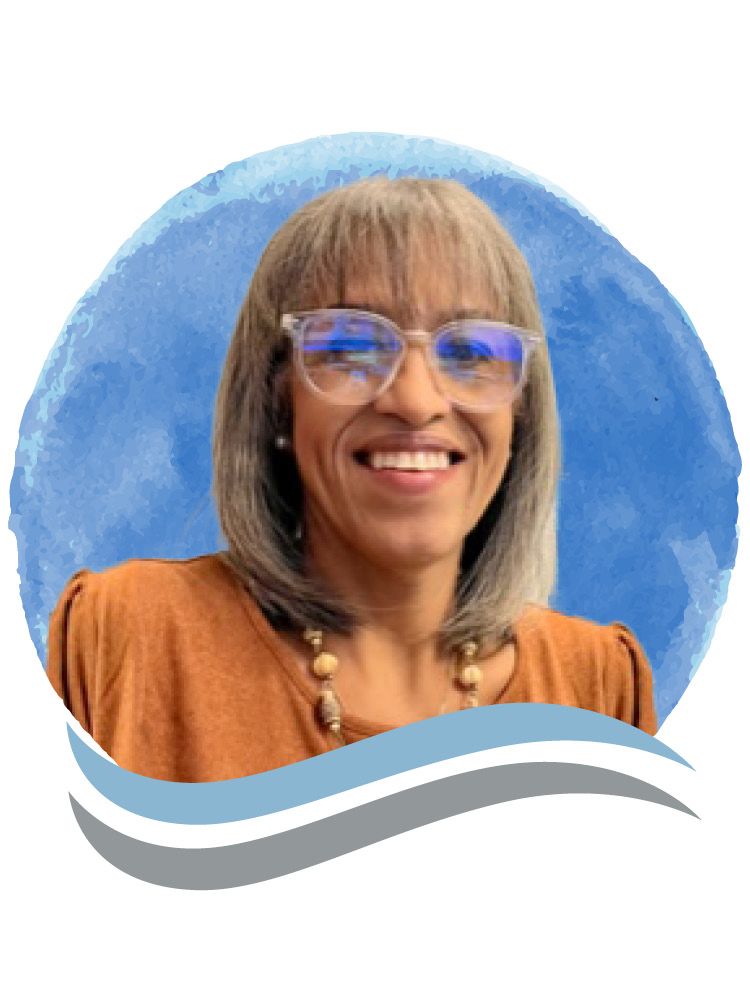
Soraia Felgenhauer
Soraia Santos Felgenhauer currently serves as the director for family and community engagement for the Clarke County School District. Originally from Brazil, she made the United States her official home after graduating college with a degree in psychology and later continuing her education with a specialist’s degree in school counseling and administration. Before joining the Clarke Country School District, she served as a counselor, statesocial worker, and school administrator.
Santos Felgenhauer has a deep passion for supporting and coaching people into finding their best selves upon arrival to the United States. Sharing in the familiar struggles of an international student whose second language was English, she has long worked to help support those from different cultures and backgrounds. She describes her professional work as “bringing family voices to the table and being a steward to highlight equity and provide quality support to families…[which] can be silenced by inequality and by limited understanding of the riches brought by diversity and inclusion from all voices around the table.”
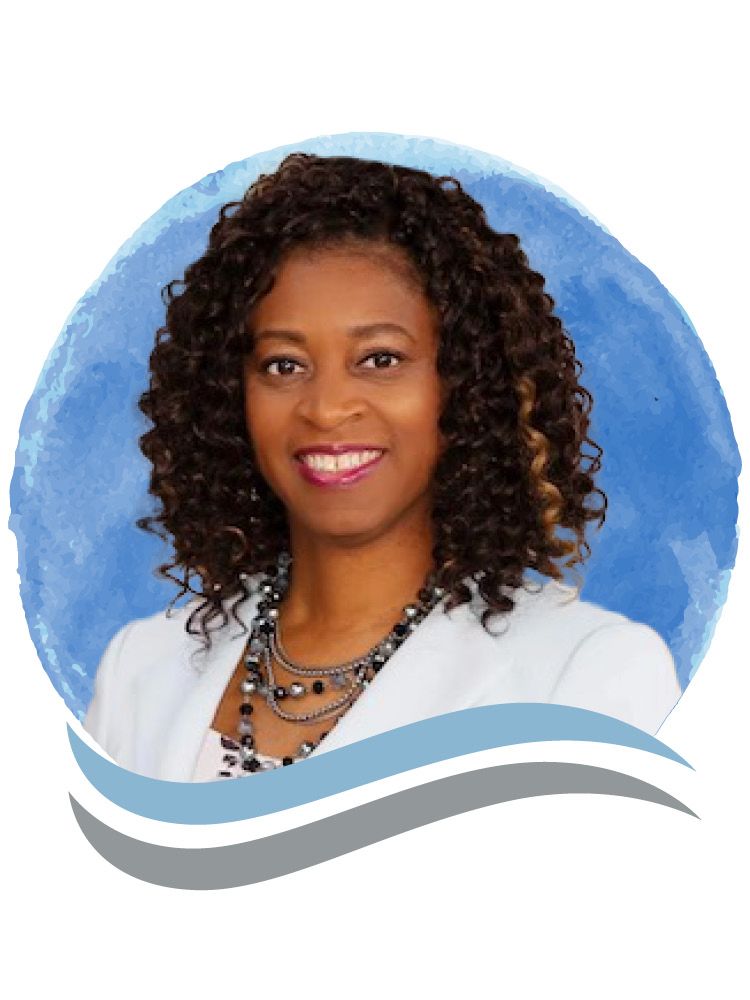
Jennifer Scott
Jennifer Scott serves as the chief of academics and student supports for the Clarke County School District (CCSD). In this role, she oversees the district’s leadership development; curriculum and instruction; student support services; special education; innovation, strategy, and governance; federal programs; and family and community engagement.
Scott joined CCSD in 1998 as a classroom teacher at Timothy Road Elementary School. She later became assistant principal at TRES in 2007 before serving as principal of Barnett Shoals Elementary School from 2011-2019. While at Barnett Shoals, she provided instructional leadership that led to a steady and consistent increase in student performance. She also fostered community partnerships aimed at supporting the academic and social-emotional needs of her school community.
Scott was appointed executive director of leadership development in 2019, a role in which she supervised and promoted the professional growth and development of CCSD principals. She was promoted to chief of student and family supports in 2022. Scott is a Triple Dawg, holding a bachelor’s degree in speech communications, a master’s degree in early childhood education, and a doctorate in educational leadership, all from the University of Georgia.
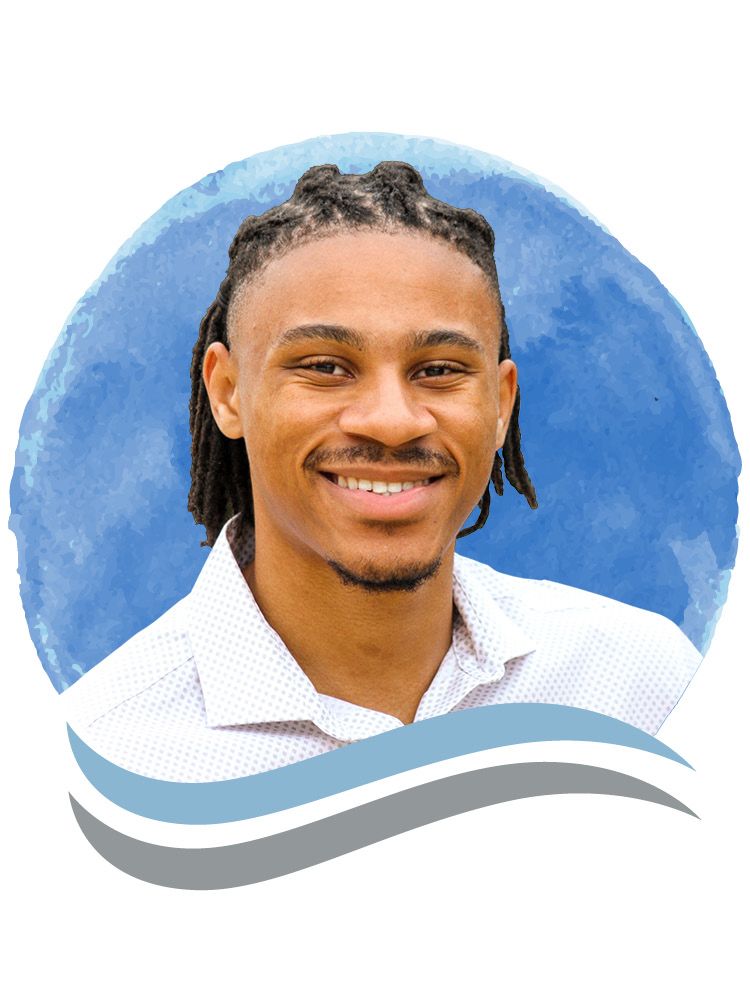
Caleb Snead
Caleb Snead is from Snellville, Georgia, and is pursuing both an undergraduate degree in health promotion and an M.P.H. in health promotion and behavior as a part of the Double Dawgs program at the University of Georgia. Snead is currently a student assistant at UGA Archway Partnership and a research assistant at the College of Public Health’s Institute of Gerontology.
Snead has worked on several public health initiatives at Archway Partnership, including assisting in the organization of the Farm Worker Family Health Program, presenting content and organizing programming for a health education initiative in African American faith-based communities, and researching and working to implement the mental health co-responder model in Moultrie, Georgia.
On behalf of the Institute of Gerontology’s Cognitive Aging Research and Education (CARE) Center, Snead has assisted in the development and evaluation of education tailored for rural Georgians on dementia risk reduction and health promotion. He is the student lead for McDuffie County, and in this role, he mentors multiple undergraduate students and tailors the CARE Center’s initiatives to community, medical, and faith leadership stakeholders.
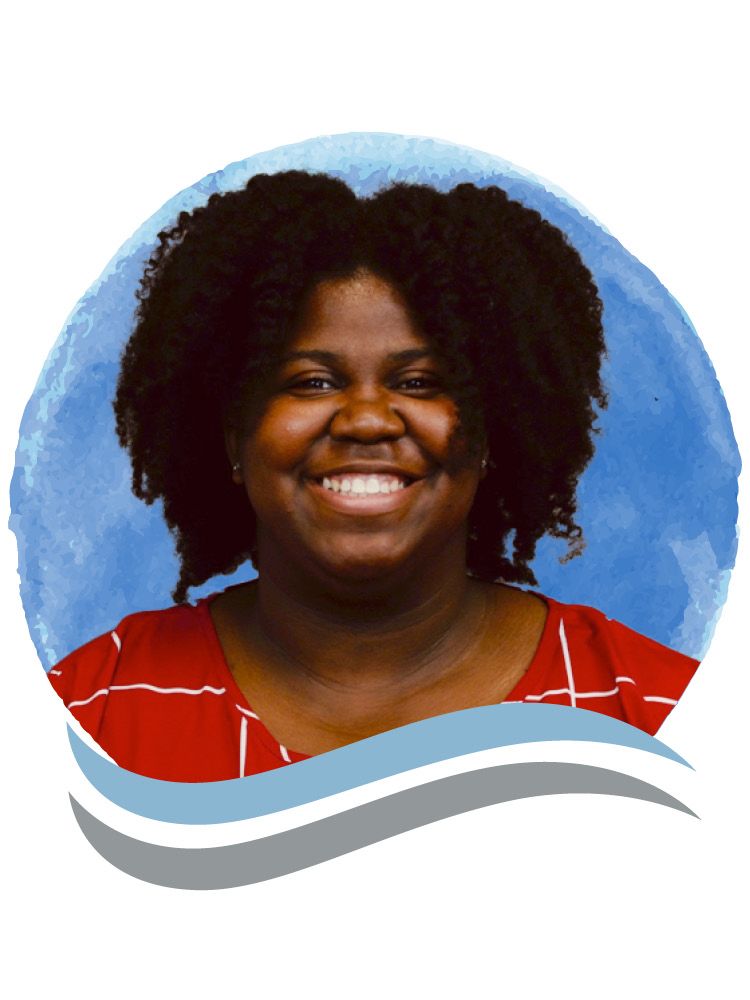
Briana Spivey
Briana Spivey, M.S., is a fourth-year doctoral candidate in the clinical psychology program at the University of Georgia and a graduate of Spelman College. Spivey’s research examines Black womanhood across the lifespan by examining the implications of cultural constructs (i.e. the Strong Black Woman (SBW) schema) on Black women’s mental health.
Spivey has an interest in developing culturally relevant interventions for Black women as a means to reducing mental health disparities. She believes that me-search equals research and hopes to use her voice in the academy to highlight the experiences of Black women. With her passion for mental health within the Black community, Spivey plans to continue her path by serving as a licensed clinical psychologist and tenure-track professor.





History of The College of Education Multicultural/Diversity Conferences
In 1994, the College of Education began sponsoring an annual multicultural education conference for college faculty, staff, and students to unite people involved or interested in activities and research related to enhancing and promoting diversity, equity, and inclusion. The conference agenda typically included a diversity leader as the keynote speaker, concurrent sessions, and research poster displays to provide multiple forums for sharing and learning together. Professional development for faculty, staff, and students is a valued hallmark of the College of Education’s multicultural and diversity efforts. The annual conference added significantly to professional development in the areas of diversity and multicultural education. In addition, the conference provided a forum for focusing on the educational needs of students. For example, the 1996, 1997, and 1999 annual multicultural education conferences were devoted to curriculum development. The conference also enabled the College to maintain a leadership role in multicultural initiatives at UGA and within the larger Athens community. After a hiatus of more than a decade, the annual conference was restored in the fall of 2013. A hallmark of the recent diversity conferences was an expansion of the attendees to include the UGA campus as well as Athens community members. Historically, faculty and staff have organized the diversity conferences. The conference took another hiatus in 2016 as the new Office of Diversity, Equity, and Inclusion was being developed. During this time, a conference planning committee of staff, students, and faculty began working on expanding the conference so that all individuals were more intentionally included as both presenters and attendees. We are thrilled to continue the tradition this year as we celebrate the 18th annual conference.
Past Keynote Presentations and Speakers
1994 The College of Education and Multicultural Education, Carl Grant
1995 Working Through the Challenges, Carlos Cortes and Beverly Guy-Sheftal
1996 Journeying Toward a Multicultural Curriculum, Asa Hilliard, Don Locke, and Ron B. Miller
1997 Multicultural Education from the Inside Out
1998 Connections: Renewing Our Commitment, Kati Haycock and Pam Martin
1999 Implementing Our Commitment, Carl Grant
2000 Confronting Challenges: Bridges & Barriers, Tracy Robinson
2013 Living our Commitments, Everyday, Together, Vanessa Siddle-Walker
2014 Promoting Diversity, Patricia Edwards
2015 Diversity in Your Backyard, Maurice Daniels
2017 Understanding and Facilitating Difficult Dialogues, Derald Wing Sue
2018 The Hate U Give: Finding Your Activism and Turning the Political into the Personal, Angie Thomas
2019 Your Body is Not an Apology: Radical Love and Disability Justice, Sonya Renee Taylor
2020 Are You Willing to Bring Yourself to the Fight Against Deep Poverty? Rosie Phillips Davis
2021 What’s Education Got to Do with It? Embracing Joy, Healing and Collective Action, Cynthia B. Dillard
2022 The Time is Now: Moving from Awareness to Action, Benjamin D. Reese, Jr.
Thank You to Our 2023 Mary Frances College of Education
DEI Conference Committee:
Rachel Cagliani, Collette Chapman-Hilliard, Vivian Dao, John Dayton, Marques Dexter, Marsha Fields, Janette Hill, Brigette Kinkade, Kayla McKinney, Chris Mojock, Chitra Pidaparti, Zuleme Reuter, Camille Reynolds, Chris Risse, Kaitlin Sanford, Cassandra Statom, and Cheryl Wilson.
Accessibility Statement
The College of Education encourages persons with disabilities to participate in its programs and activities. Call 706-542-8719 or email drc@uga.edu for information about architectural access and to arrange for sign language interpreters, assistive listening devices, large print, audio, or Braille. Requests for interpreter services should be made as early as possible but must be made at least five (5) days prior to the actual event.
